Steven Moffat’s first Doctor Who episode, “The Empty Child,” premiered back in 2005, and it was widely considered to be the best of an already good debut season for the rebooted series. After that came one stellar episode after another: Moffat was clearly Doctor Who‘s secret weapon in the early years.
Moffat later took over as showrunner in 2010 and contributed even more excellent (and, often, completely terrifying) episodes to the show. But which ones are his very, very best? Get ready to hide behind the sofa as we explore Steven Moffat’s 10 greatest Doctor Who episodes and what makes them so unforgettable.
10. “Silence in the Library”
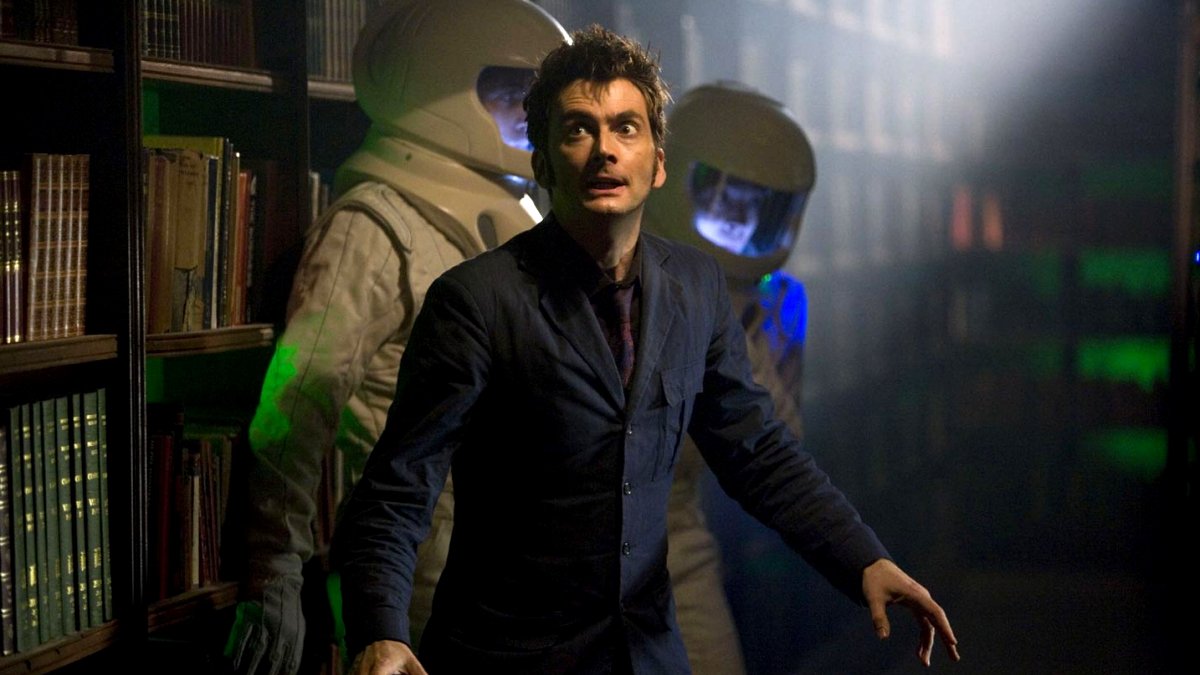
“Silence in the Library” was full of shocks. First came the Vashta Nerada, horrific creatures that live in the shadows and reduce people to skeletons lumbering about in spacesuits. Then came the revelation that River Song (Alex Kingston) was someone from the Doctor’s past who was very close to him, perhaps even his wife. And what happens next? Why is Donna just a face?! Add to all that the mystery of a little girl who seems to be psychically controlling the titular Library and it’s an absolute rollercoaster ride of an episode.
9. “The Eleventh Hour”

“The Eleventh Hour” was the first time since the start of the revival that a new Doctor and new companion had been introduced in the same episode. Moffat did the sensible thing of introducing the companion, Amy Pond (Karen Gillan) first and having us see the Eleventh Doctor (Matt Smith) through her eyes. Both characters went on to be totally beloved by Doctor Who fans and this episode laid the groundwork for that. It’s up against some stiff competition, but it’s one of the best season openers.
8. “The Pilot”
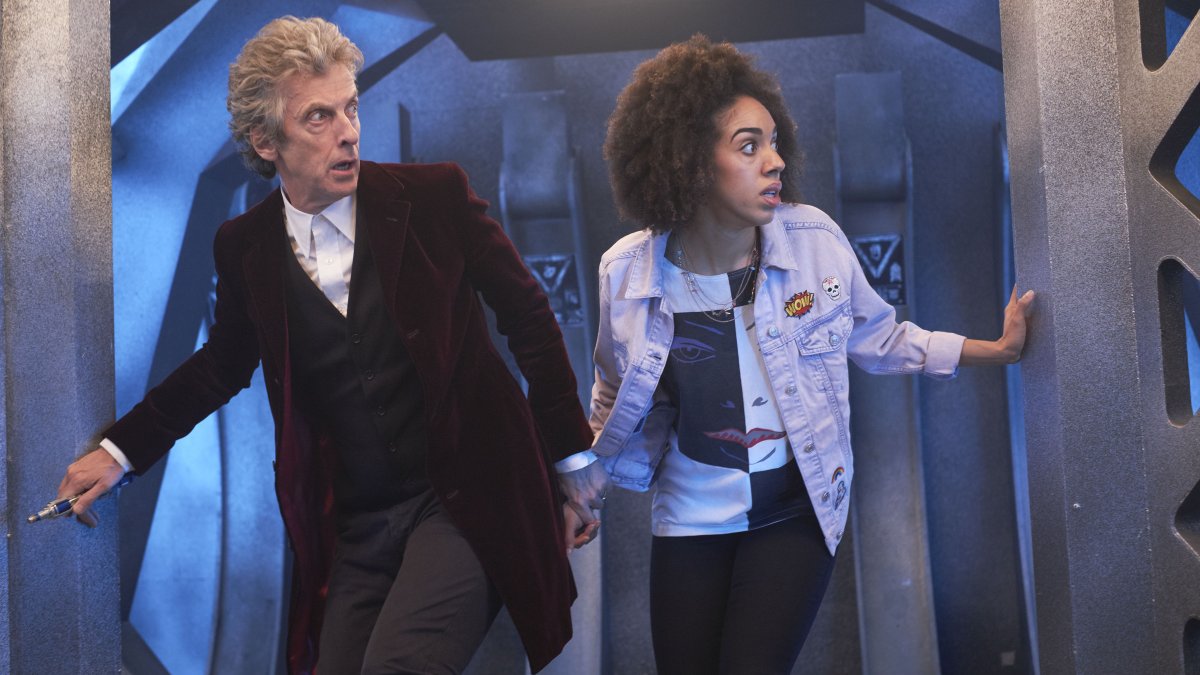
By the time “The Pilot” came out, Doctor Who viewers had already seen multiple companion introduction episodes, and yet this one still felt new and fresh. It introduced Bill Potts (Pearl Mackie), the first lesbian companion of the Doctor, and Moffat made us fall in love with her right away. Her relationship with the Doctor was a fantastic close mentor-student friendship, and her short-lived romance with fellow student Heather (Stephanie Hyam) provided a powerful emotional connection that would come back and surprise everyone at the end of the season.
7. “The Empty Child”
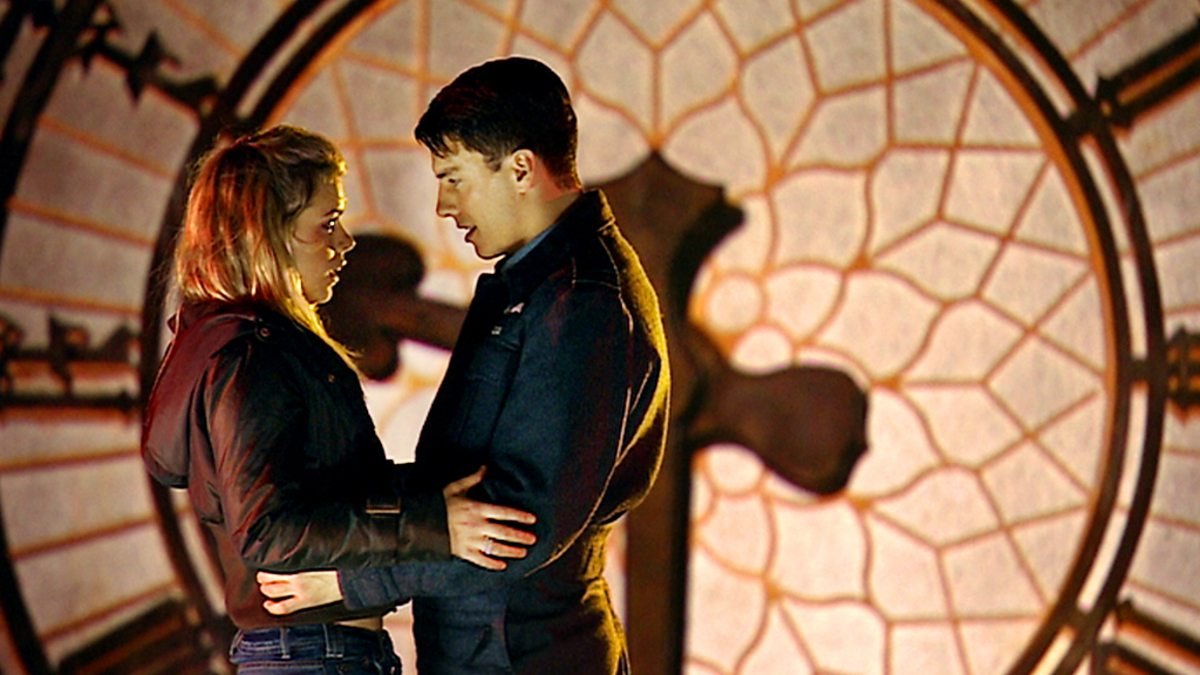
“The Empty Child” marked the beginning of Moffat’s tenure as a beloved Who writer. The Doctor (Christopher Eccleston) and Rose (Billie Piper) follow a capsule to Earth and land in the middle of the Blitz. That’s dangerous enough already, but something else is out there … a child with a gasmask for a face, who can turn others into gasmask-people just by touching them. And all the child ever says is “Are you my mummy?” Those words sent a guaranteed shiver down the spine of anyone who watched this episode as a kid. This episode also marked the first appearance of Jack (John Barrowman), Doctor Who’s very first pansexual companion.
6. “The Girl in the Fireplace”
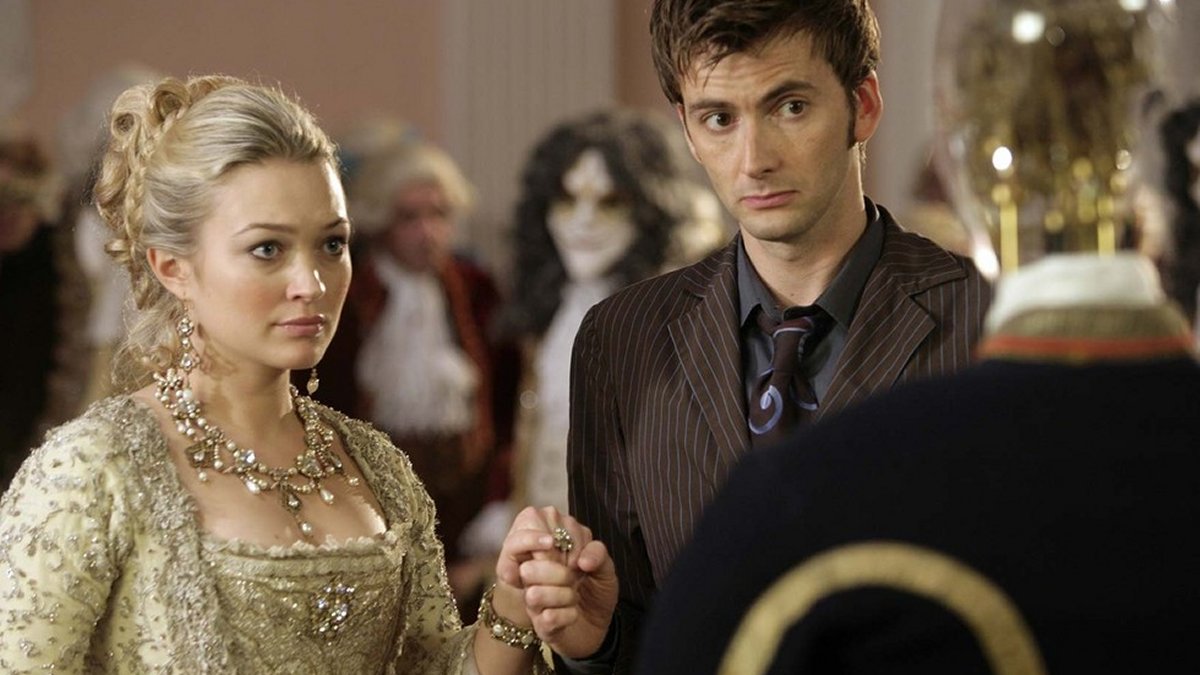
What’s the point of time travel if you can’t hook up with interesting historical figures? In “The Girl in the Fireplace” the Tenth Doctor (David Tennant) finds himself taken with the accomplished Madame de Pompadour (Sophia Myles), but they can never be together. Time is against them and so are the terrifying Clockwork Men, which come from a spaceship constructed from body parts. This episode planted the seeds of various themes Moffat would explore in more depth when he took over as showrunner.
5. “The Day of the Doctor”

There was so much riding on “The Day of the Doctor,” seeing as how it was the biggest part of Doctor Who‘s 50th anniversary celebrations. And Steven Moffat delivered. “The Day of the Doctor” brings together the Eleventh Doctor, the Tenth Doctor, the War Doctor (John Hurt), Clara Oswald (Jenna Coleman), and a mysterious figure taking the form of Rose Tyler (Billie Piper.) It was a total crowd-pleaser with some unexpected but delightful cameos.
4. “Boom”
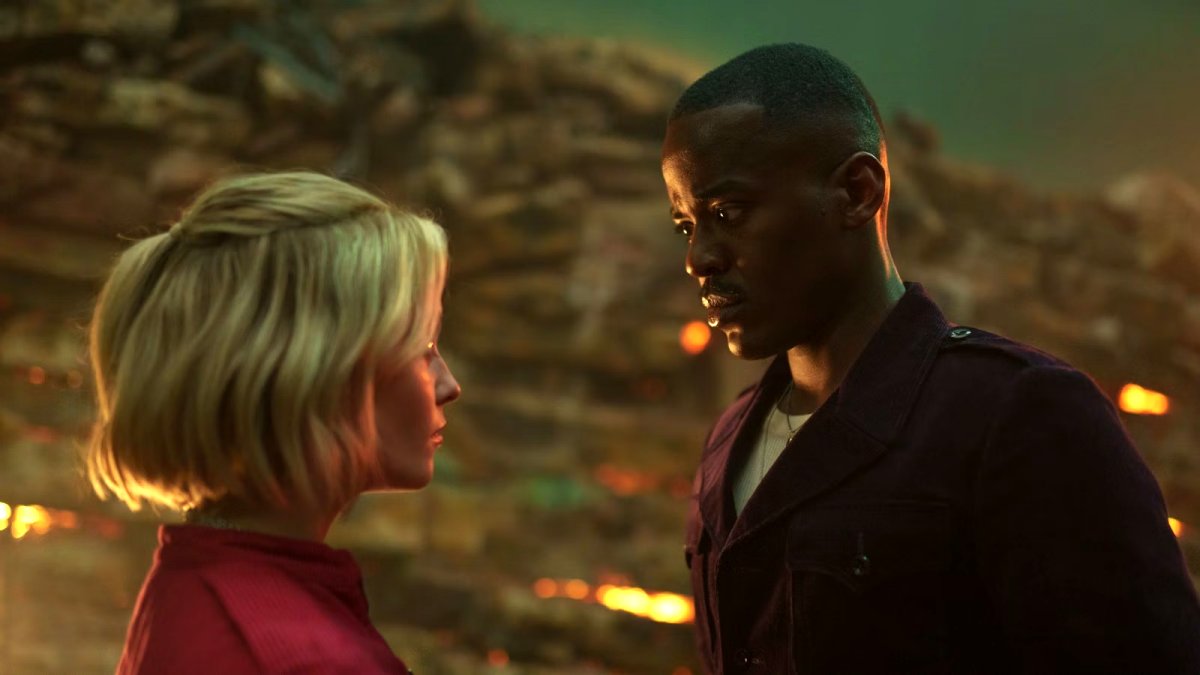
Steven Moffat had been absent from Doctor Who for several years before triumphantly returning with “Boom” in the Ncuti Gatwa era. The plot is simple: The Doctor steps on a landmine, and if he steps off of it, he’ll die—along with half the planet. But “Boom” isn’t just a high-stakes alien planet adventure; it has some serious points to make about war, capitalism, and organized religion. It also features excellent performances from Ncuti Gatwa, Millie Gibson, and Varada Sethu.
3. “Heaven Sent”
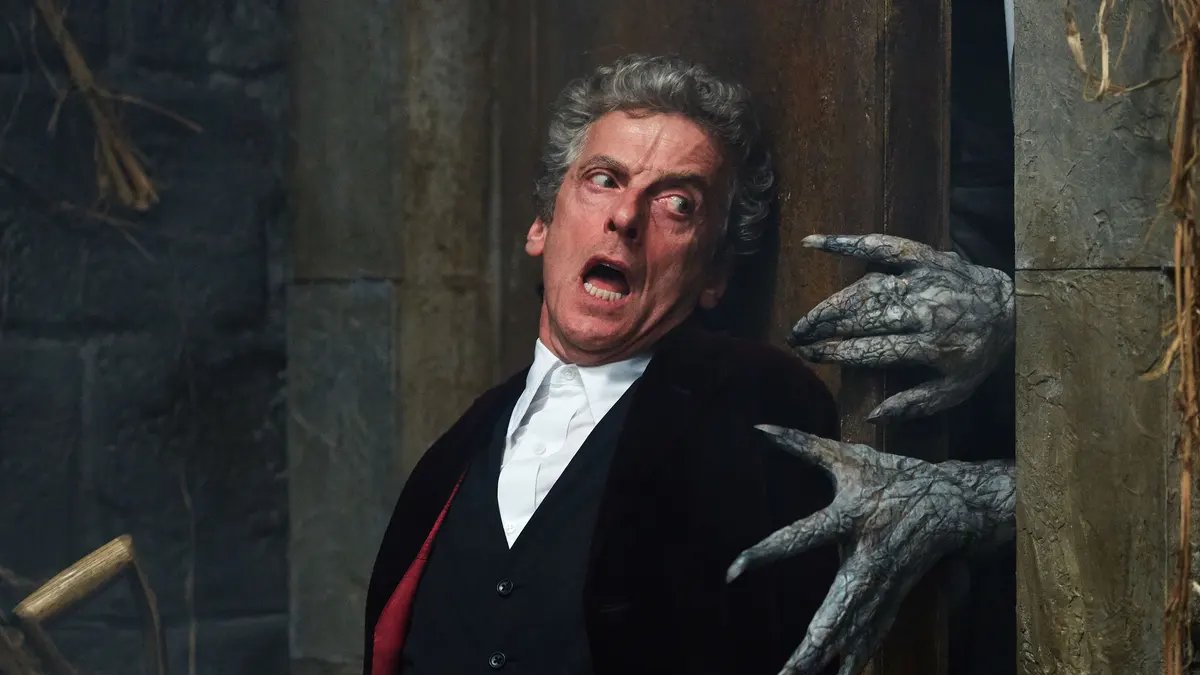
Clara Oswald is dead, and the Doctor is trapped inside an incredible prison. He must call on all his resources and overcome his grief if he stands any chance of getting out. But has he really met his match this time? This episode was nominated for a Hugo Award and it was well-deserved. “Heaven Sent” is considered one of the very best episodes of the Peter Capaldi era, which was already a strong run. Capaldi is all on his own here, carrying the whole episode, and Moffat knew how to highlight his talents.
2. “Listen”

“Listen” is a hugely ambitious episode. It delves into the past of the Doctor and takes us right back to his childhood bedroom, it features a monster that may not be a monster at all, and it deepens the relationship between Clara Oswald and her boyfriend Danny Pink (Samuel Anderson.) In lesser hands this would have all been too much to juggle and the episode might have fallen apart, but Moffat weaves all these plot threads together in a hugely affecting episode about fear. It’s a sophisticated, unflashy, very good story.
1. “Blink”

Everyone remembers where they were when they first saw “Blink.” It’s arguably the scariest Doctor Who episode ever, featuring a group of benevolent-looking angel statues that suddenly turn monstrous when no one’s looking. Those Weeping Angels became one of the most iconic Doctor Who creations ever. And this episode features a young Carey Mulligan as the main character! It’s an absolute masterpiece.










Published: Jun 8, 2024 03:00 pm